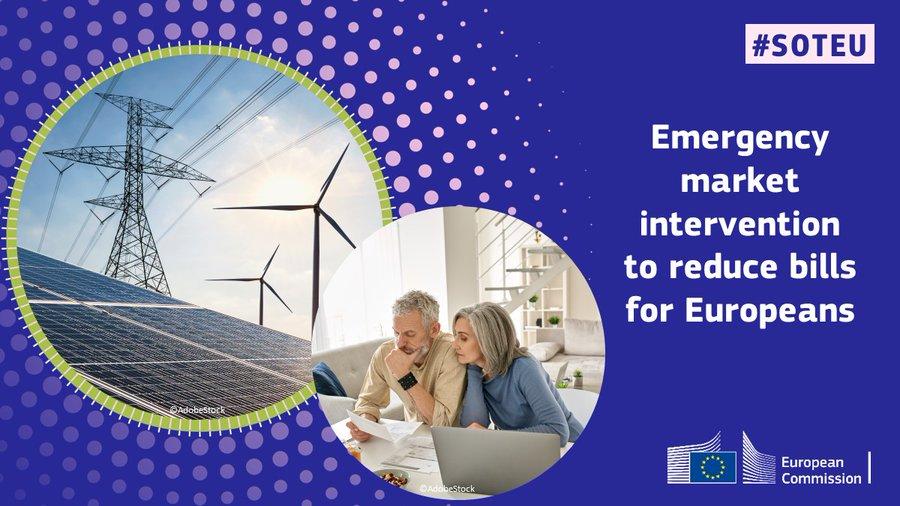European Union’s Tax Strategy: How Europe Is Reacting to Energy Market Pressure
In 2025, the European Union confirmed its commitment to face the energy crisis and support the green transition through several tax, regulatory and structural actions. The crisis, caused by geopolitical tensions, higher prices of fossil fuels and problems with supply chains, pushed the European Commission and national governments to change their energy tax policies. The goal is to protect families and businesses, help sustainability and reduce Europe’s energy dependence on other countries.
A European Plan for Cheaper and Greener Energy
In February 2025, the European Commission introduced a big plan to cut taxes on energy. The main steps include lowering VAT and excise duties on electricity and gas. The EU wants to save up to €45 billion on fossil fuel imports by the end of 2025, and up to €130 billion per year by 2030. The plan also makes it easier to approve renewable energy projects and extends state aid for clean technologies.
However, the legislative process in the EU is still difficult. The reform of the Energy Taxation Directive, first suggested in 2021, is blocked because all EU countries must agree. The biggest disagreements are about how to tax fuels used in aviation and shipping. Some countries, like Belgium, proposed special rules for sectors like farming and fishing to help move the discussions forward.
How Much of Your Energy Bill Is Tax?
In April 2024, data showed that taxes and VAT are a big part of household energy bills across Europe. On average, 22% of electricity bills in capital cities are taxes—around 8% in energy taxes and 14% in VAT. For natural gas, the average tax share is around 28%.
But there are big differences between countries. In Copenhagen, taxes are 49% of the electricity price. In Stockholm it’s 41%, and in Brussels 37%. Berlin (34%), Madrid (32%) and Helsinki (32%) are also high.
For gas, Amsterdam has the highest tax level at 49%, followed by Berlin (40%), Vienna (32%), Rome and Stockholm (31%), and Paris (30%). In some countries, government support is so strong that it creates a “negative tax effect.” For example, in the Netherlands, tax credits given to consumers are bigger than the taxes they pay, meaning they actually get money back. This also happens in Luxembourg.
National Actions: Italy, Belgium, Spain and Other EU Countries
Italy
In February 2025, the Italian government approved a €3 billion package to support families and small businesses. Of this, €1.6 billion will help families, and €1.2 billion will go to small and medium enterprises (SMEs). The money is already in the national budget. Italy wants to keep its public deficit under 3% of GDP by 2026, down from 3.8% in 2024.
At the same time, electricity bills might go up. This is because power companies must now pay the state extra money to renew their licenses for up to 20 years. This money helps the government budget, but for now, there are no plans to give it back to consumers.
Belgium
In 2025, Belgium launched a full tax reform to support greener choices. VAT dropped from 21% to 6% for installing heat pumps (valid for 5 years). But VAT went up to 21% for fossil fuel boilers and coal.
On excise duties, Belgium cut electricity taxes for businesses to the EU minimum, started reducing refunds on diesel used for trucks, and removed taxes on tea, coffee and sugar-free drinks. The government is also thinking about more tax cuts to stop people from buying energy in other countries.
Spain
Spain extended into 2025 the 1.2% special tax on profits of big energy companies with revenues over €1 billion. It also introduced a minimum 15% corporate tax rate for multinational companies earning over €750 million, and reduced tax deductions.
In finance, Spain added a banking tax with progressive rates from 1% to 7%, based on interest margins and service fees. The money collected goes to the regions, based on their GDP.
France
In November 2024, France canceled a plan to raise electricity taxes. The decision came after political pressure from the Rassemblement National and fears of a government crisis. The government confirmed that protecting families’ purchasing power is the top priority.
Germany
From January 1, 2025, Germany stopped asking neighboring countries to pay a gas storage tax. The tax was going to increase by 20%, up to €2.99 per MWh. Germany removed it to help energy cooperation and supply in southern European countries.
Cyprus
In May 2025, Cypriot President Nikos Christodoulides said the country would stop new carbon taxes that were part of the EU Recovery and Resilience Plan. He said the new taxes would make both water and fuel more expensive. The government is ready to give up some EU funds to protect consumers.
Netherlands
From January 1, 2025, the Netherlands removed tax breaks for electricity and gas used in metal and mineral industries. These were seen as unfair subsidies for fossil fuels. At the same time, the government introduced a tax exemption for electricity used to make green hydrogen by electrolysis—showing a move towards cleaner energy.


